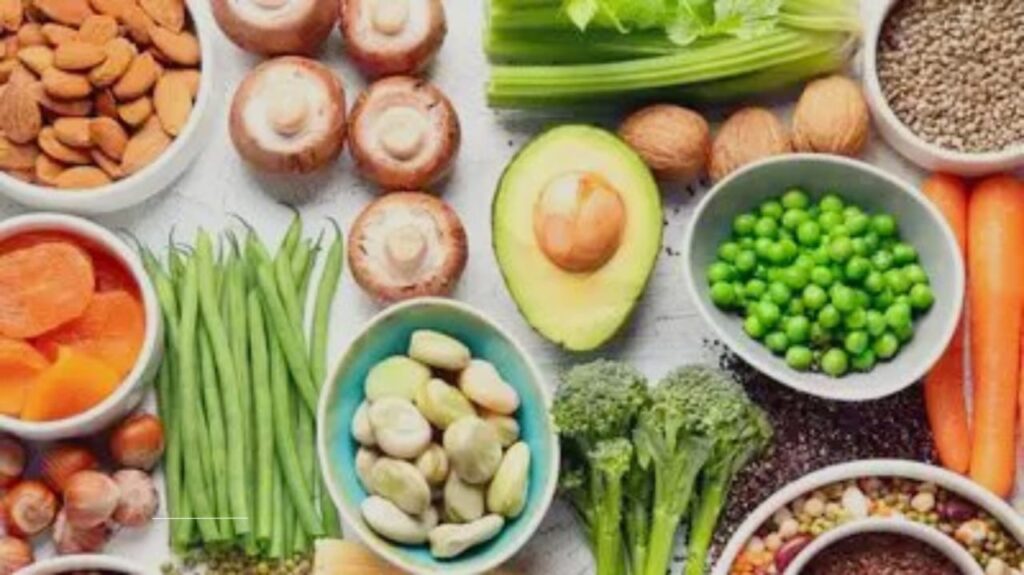
Can you build muscle on a vegan diet? Absolutely. Gone are the days when animal products were seen as the only path to gains. With the rise of plant-based nutrition, athletes and fitness enthusiasts are proving that lentils, tofu, and even algae can fuel serious muscle growth. But navigating the world of vegan protein requires strategy. Let’s dive into the science, the top protein sources, and practical tips to help you thrive.
Why Protein Matters for Muscle Building
Protein is the building block of muscle. When you strength train, you create microscopic tears in muscle fibers. Protein repairs these tears, leading to muscle growth (hypertrophy). The key? Consuming enough high-quality protein with all nine essential amino acids (EAAs), particularly leucine, which triggers muscle synthesis.
While animal proteins are naturally “complete” (containing all EAAs), many plant proteins are “incomplete.” But this isn’t a deal-breaker—strategic combining and variety solve the puzzle.
The Myth of “Incomplete” Plant Proteins
The idea that plant proteins are inferior stems from outdated research. Yes, some (like rice) lack certain EAAs, but pairing them with complementary sources (e.g., beans + rice) creates a complete amino acid profile. Studies show that as long as you eat a varied diet throughout the day, muscle synthesis isn’t compromised.
Dr. Nancy Rodriguez, a nutrition scientist at the University of Connecticut, states: “Plant-based diets can meet protein needs for athletes when planned thoughtfully, focusing on diversity and quantity.”
Top Vegan Protein Sources for Muscle Growth
1. Lentils (18g Protein per Cooked Cup)
Lentils are a powerhouse. Packed with iron and fiber, they’re versatile in soups, stews, or as a meat substitute in tacos. Pair with brown rice to boost methionine, an EAA often low in legumes.
Recipe Idea: Lentil-walnut “meatballs” with marinara sauce.
2. Tofu (10g Protein per 100g)
Made from soybeans, tofu is a complete protein. Firm tofu works well in stir-fries, scrambles, or grilled. Bonus: Soy contains phytoestrogens, which studies confirm don’t lower testosterone in men.
Pro Tip: Freeze and thaw tofu for a chewier texture.
3. Tempeh (19g Protein per 100g)
Fermented tempeh offers probiotics for gut health. Its nutty flavor shines in sandwiches or marinated as a steak alternative.
4. Seitan (25g Protein per 100g)
Made from wheat gluten, seitan mimics meat’s texture. Avoid if gluten-sensitive, but it’s a favorite for vegan “chicken” dishes.
5. Chickpeas (15g Protein per Cooked Cup)
Blend into hummus, roast for snacks, or toss in salads. Chickpeas are rich in lysine, an EAA crucial for muscle repair.
6. Hemp Seeds (10g Protein per 3 Tbsp)
These seeds contain omega-3s and all EAAs. Sprinkle on oatmeal or blend into smoothies.
7. Edamame (17g Protein per Cooked Cup)
Young soybeans are a complete protein. Steam and salt for a snack or add to poke bowls.
8. Pea Protein Powder (25g Protein per Scoop)
Isolated pea protein is rich in BCAAs. A 2020 study in Sports Medicine found it as effective as whey for muscle growth when consumed in equal amounts.
9. Quinoa (8g Protein per Cooked Cup)
A rare complete plant protein, quinoa replaces rice in bowls or salads.
10. Spirulina (4g Protein per Tbsp)
This algae is 60–70% protein by weight. Mix into smoothies for an iron boost.
Combining Proteins: Maximize Muscle Synthesis
You don’t need to eat complementary proteins in one meal—just aim for variety daily. Examples:
- Beans + Whole Grains (e.g., black bean chili with barley)
- Nuts + Legumes (e.g., peanut butter on whole-grain toast with lentil soup)
Meal Timing and Frequency
- Post-Workout: Consume 20–40g protein within 2 hours. Try a smoothie with pea protein, banana, and almond milk.
- Daily Intake: The ISSN recommends 1.6–2.2g protein per kg of body weight for athletes. A 75kg vegan athlete needs ~120–165g daily.
Supplements: Vegan Protein Powders
When whole foods aren’t convenient, powders fill gaps. Top picks:
- Pea Protein: High in arginine, which supports blood flow.
- Rice + Pea Blend: Mimics the amino profile of whey.
- Soy Protein: A complete, budget-friendly option.
Overcoming Challenges
- Digestibility: Soak legumes and grains to reduce phytates.
- Caloric Density: Add nut butters or avocados to meals for extra calories.
- BCAAs: While plants have fewer BCAAs than meat, eating enough total protein typically covers needs.
FAQs
Q: Can vegans build muscle as fast as meat-eaters?
A: Yes. A 2021 Journal of Nutrition study found no significant difference in muscle growth between plant and animal protein groups when intake was matched.
Q: Do I need to take B12 supplements?
A: Yes. B12 isn’t naturally found in plants. Supplement or consume fortified foods.
Q: Are vegan diets low in creatine?
A: Yes. While your body makes some, supplementing 3–5g daily may enhance performance.
Q: Can I get enough protein without soy?
A: Absolutely. Focus on lentils, seitan, hemp, and protein blends.
Q: How do I avoid bloating on high-fiber vegan diets?
A: Gradually increase fiber intake and drink plenty of water. Fermented foods like tempeh can aid digestion.
